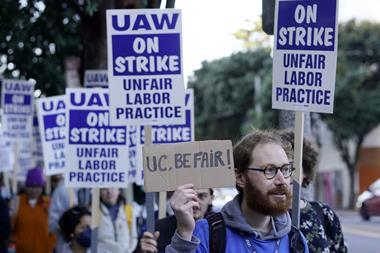Top-down support is needed to stop exploitative PhD practices

It’s easy to present career stories as a series of events that happen one after the other: found a job, gained useful skills and experience, moved on to a new job. However, few careers proceed that smoothly. New opportunities rarely come up exactly when you need one. This might not be so bad if something exciting comes up sooner than you feel ready for – it can be the push you need to realise your full potential. However, it can be pretty frustrating if you find yourself stuck waiting for a better (or any) job offer, especially if you endure several rejected applications in the process.
The stress of chasing that next position is amplified if you can’t rely on a continued source of income – for example, if you’re being made redundant, or are a PhD student writing up your thesis.
For cases of redundancy, employers are often obliged to provide some form of transitional support – mostly by granting the time to look for a new job. In some countries, redundancy laws entitle you to paid time off during your notice period for job applications or retraining (in the UK, this can be up to 40% of your normal weekly working hours). Redundancy pay is also effectively a means of support that allows individuals to job hunt full-time.
PhD students face the opposite problem: once their studentship ends, not only do they no longer have an income, but they might feel pressure to continue working for free. This is especially the case for those who plan to pursue an academic career, who might need the extra time to strengthen the first-author papers they’re going to use to differentiate themselves from other candidates for postdoc positions. And with their supervisor’s career also hinging on those publications, even PhD graduates who plan on leaving academia behind may feel pressure to return to complete a few final experiments.
As Victoria Atkinson explores for Chemistry World, some schemes are emerging to provide transition funding for this period. However, implementing this more widely will be expensive – and with economic turmoil facing many universities and funders, exploring this option is unlikely to be a priority.
Preventing PhD graduates from working for free is a problem that has to be solved by wider cultural changes at more senior levels. A driven PhD graduate who feels their career hangs on doing a few more experiments is unlikely to stop voluntarily (and may even come up with creative ways to get around any regulations that try to stop them), even if it’s damaging their mental and financial health. When you’re otherwise unemployed, doing anything that feels like it’s helping your career can seem like progress, no matter how exploitative it might be.

















No comments yet